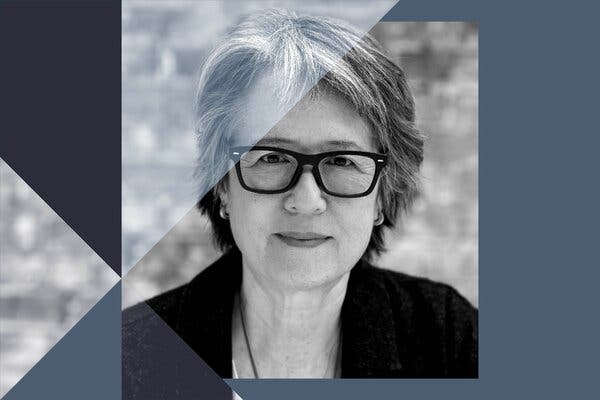The world has gotten louder, even when we’re alone. A day spent in isolation can still mean a day buffeted by the voices on social media and the news, on podcasts, in emails and text messages. Objects have also gotten louder: through the advertisements that follow us around the web, the endless scroll of merchandise available on internet shopping sites and in the plentiful aisles of superstores. What happens when you really start listening to all these voices? What happens when you can’t stop hearing them?
[You can listen to this episode of “The Ezra Klein Show” on Apple, Spotify, Google or wherever you get your podcasts.]
Ruth Ozeki is a Zen Buddhist priest and the author of novels including “A Tale for the Time Being,” which was shortlisted for the Booker Prize, and “The Book of Form and Emptiness,” which I read over paternity leave and loved. “The Book of Form and Emptiness” is about Benny, a teenager who starts hearing objects speak to him right after his father’s death, and it’s about his mother, Annabelle, who can’t let go of anything she owns, and can’t seem to help her son or herself. And then it’s about so much more than that: mental illnesses and materialism and consumerism and creative inspiration and information overload and the power of stories and the role of libraries and unshared mental experiences and on and on. It’s a book thick with ideas but written with a deceptively light, gentle pen.
Our conversation begins by exploring what it means to hear voices in our minds, and whether it’s really so rare. We talk about how Ozeki’s novels begin she hears a character speaking in her mind, how meditation can teach you to detach from own internal monologue, why Marie Kondo’s almost animist philosophy of tidying became so popular across the globe, whether objects want things, whether practicing Zen has helped her want less and, my personal favorite part, the dilemmas posed by an empty box with the words “empty box” written on it.
You can listen to our whole conversation by following “The Ezra Klein Show” on Apple, Spotify, Google or wherever you get your podcasts. View a list of book recommendations from our guests here.
This episode contains a brief mention of suicidal ideation. If you are having thoughts of suicide, call the National Suicide Prevention Lifeline at 1-800-273-8255 (TALK). A list of additional resources is available at SpeakingOfSuicide.com/resources.
(A full transcript of the episode will be available midday on the Times website.)
“The Ezra Klein Show” is produced by Annie Galvin, Jeff Geld and Rogé Karma; fact-checking by Michelle Harris; original music by Isaac Jones; mixing by Jeff Geld; audience strategy by Shannon Busta. Our executive producer is Irene Noguchi. Special thanks to Kristin Lin and Kristina Samulewski.


























